I have wanted to go to Chichicastenanago, the largest market in Central America, ever since we arrived in Guatemala over a year and a half ago.
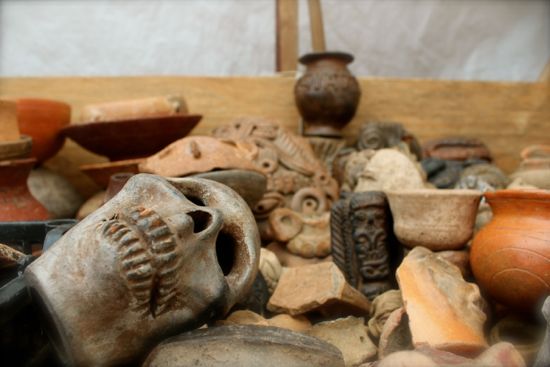
From Los Encuentros, we took the road heading northeast. It was windy and steep with lots of tumulos (speed bumps). The roads in the highlands of Guatemala are notoriously windy, but this one… woah, it was bad. We knew how bad it was when Aaliyah suddenly called out, “I think I’m going to throw up!” And then she proceeded to blow chunks everywhere.
I managed to hand a bowl to her before her ‘second round’, but by then it was all over the seat, the floor, her pants and shoes. We’re out of the habit of this travel thing, so we were totally unprepared. No wipes, no toilet paper, no towels. Nothing.
I ran into the ‘store’ next to where we pulled over.
“Do you have any toallas (towels)?”
“Yes,” she told me, then pointed to some feminine pads. Hmmm… that’s not going to work.
“No, wipes, napkins, anything??”
“No.”
Arriving in the town of Chichi, a man waved at us then ran ahead to show us where to park… on lot was too full of pigs, another was too small for our truck. Finally he jumped on and showed us where to go. Their lot was too full for us, but they did have space on the street in front. When we came back from the market, they charged us Q25 to park on the street!
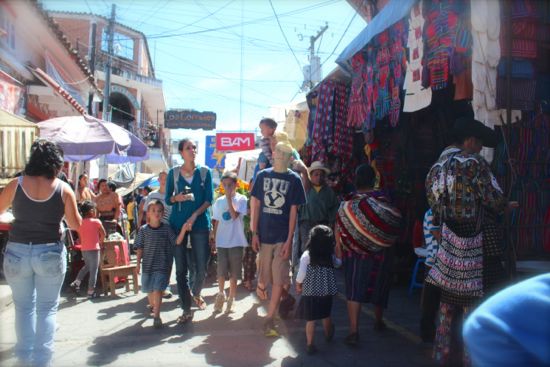
Walking into the market, I was a little worried that it was going to be just like every other market. I see many of the same knick-knacks and handicrafts that are available on Santander in Panajachel — bags, pillow cases, quilts, table runners — made out of discarded huipils and cortes, the traditional clothing of the Guatemalan women.
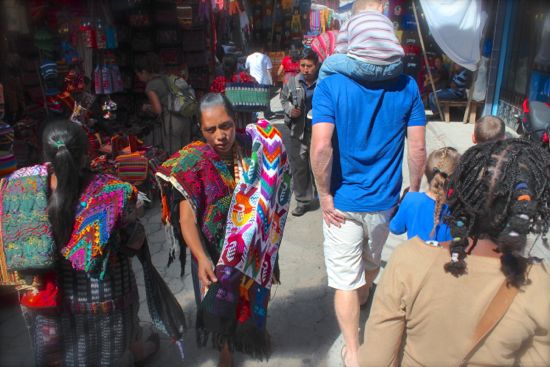
But we keep walking, and discover some novelties — an old man selling old silver coins, another man selling ‘artifacts’ and stones, ‘miniature’ pineapples, antiques — but most interesting of all is the people.

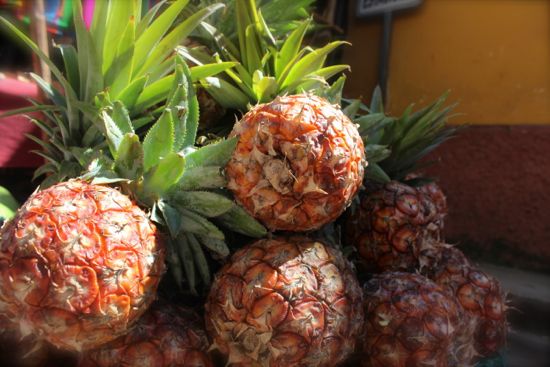



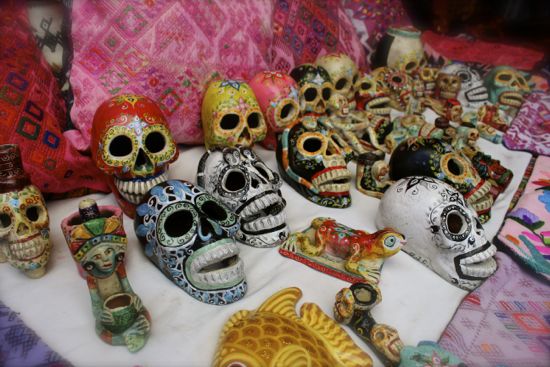
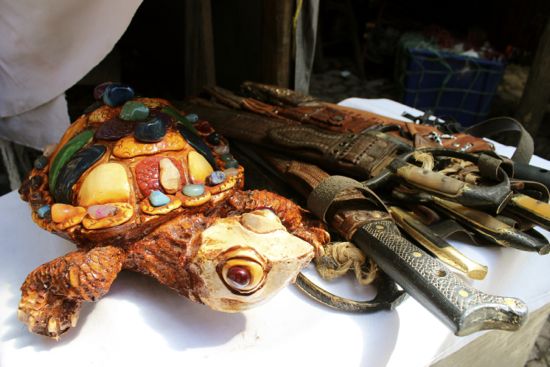
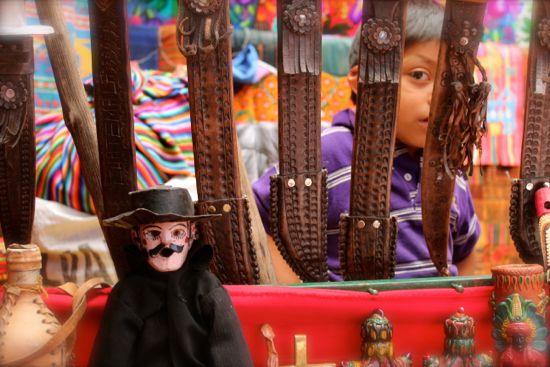
Men and women, old and young, some in tipica, others in regular clothes, sitting, waiting, selling, spending their lives, day in, day out here in the streets of Chichi.
Entire generations who’s livelihood is based on the markets of Chichi.
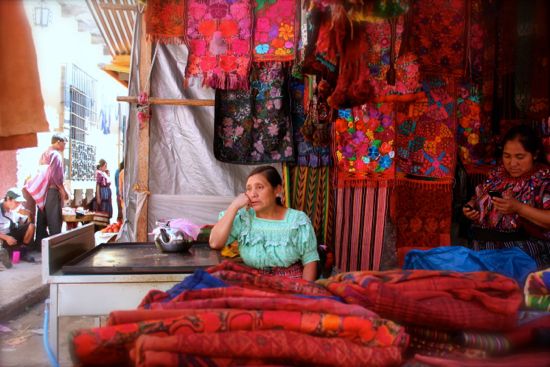
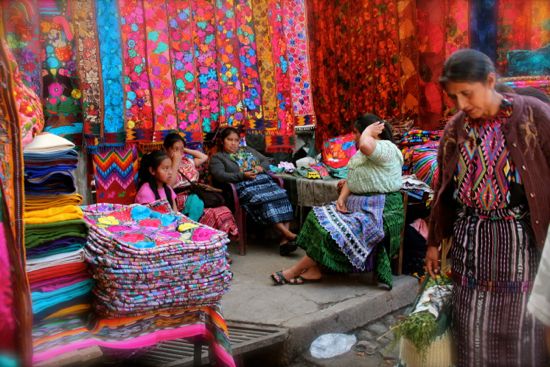
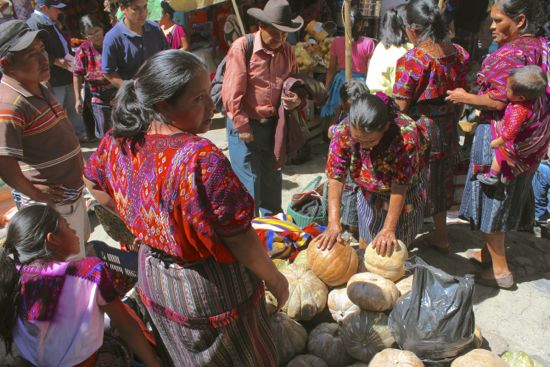
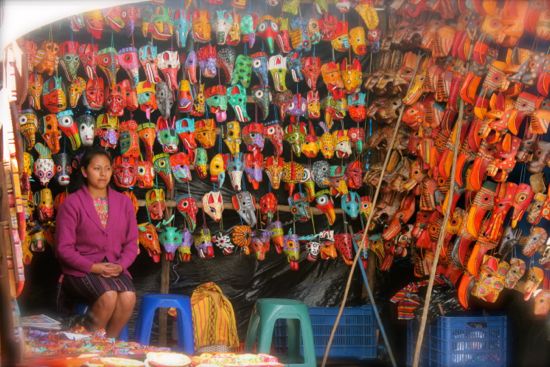
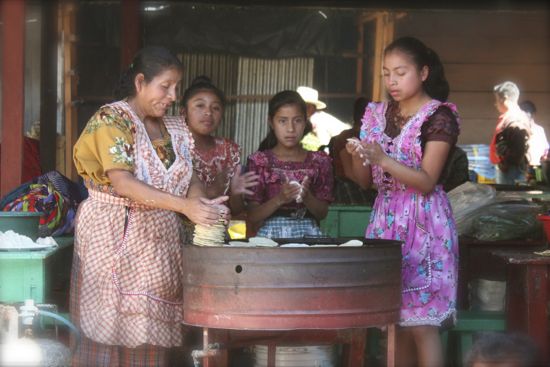
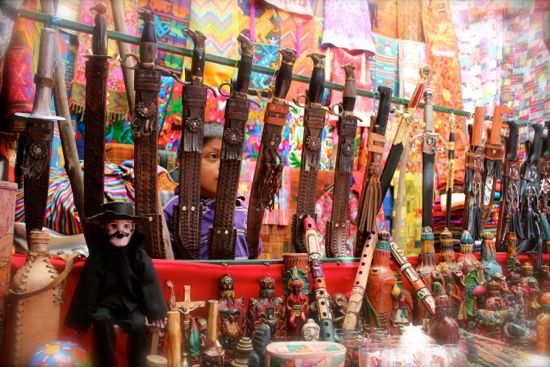
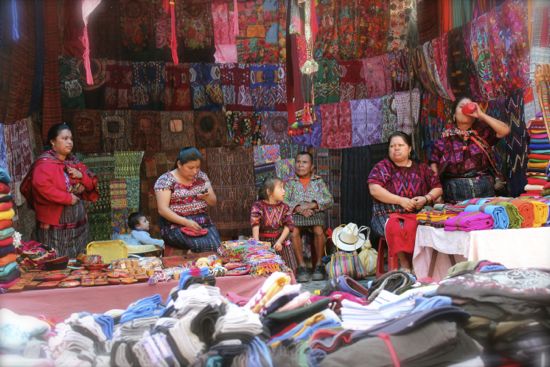
Then we came to one of the churches. Camped on the steps were men and women selling flowers. At the base of the stairs, and at the church steps, incense was being burnt and offerings were being made.
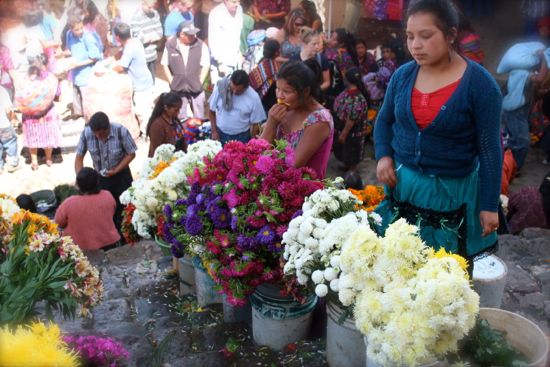
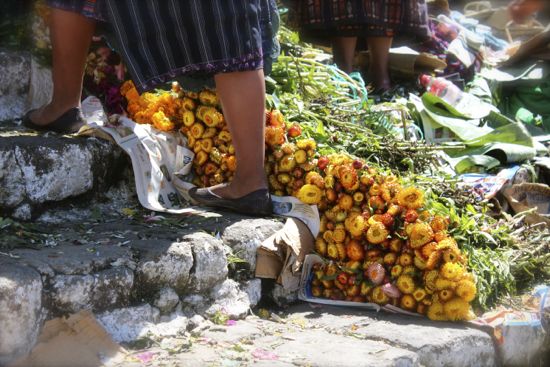
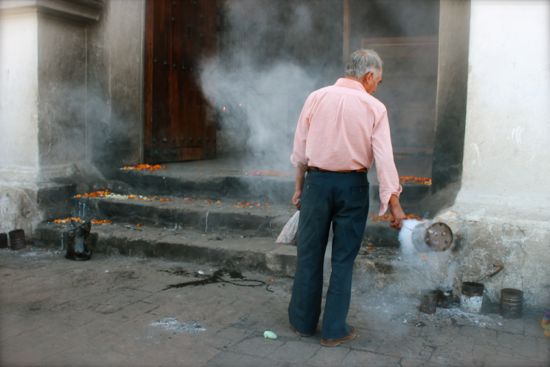
As we stood on the steps and watched the people, Greg said, ‘This is really cool! I love this stuff. It makes me want to travel more!” (Oh good, our trip to Chichi wasn’t an entire waste ![]() )
)
Inside, men and women were praying. One woman approached me an offered a tour, explaining that the altars in the walkway were offerings to the Mayan gods, the rest of the cathedral was typical Catholic, devoted to the Saints and Christ. It was an interesting mix of multiple religions.
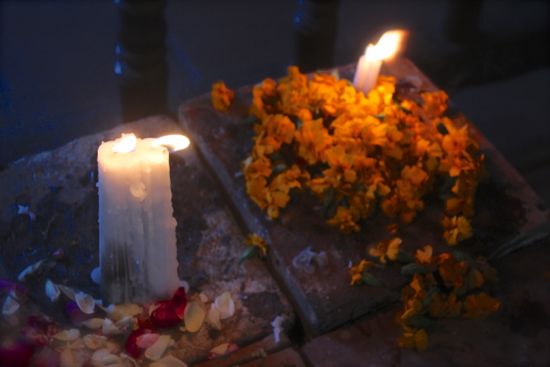
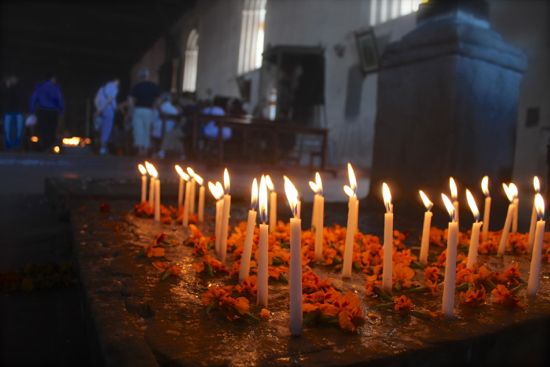
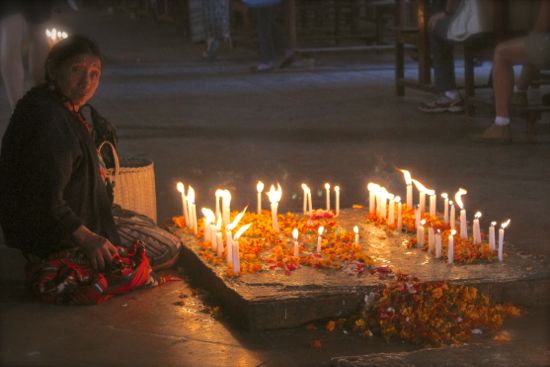
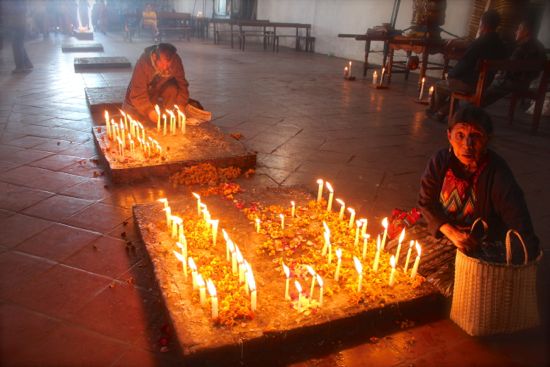
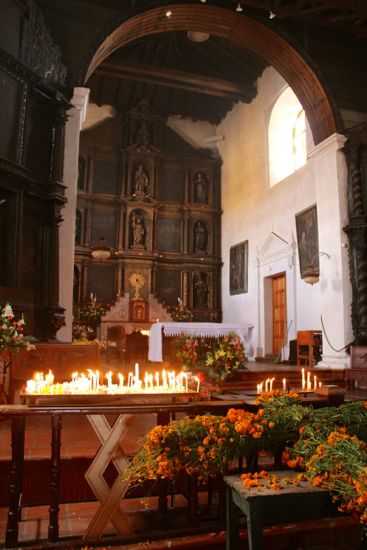

Rachel Denning is an unassuming mother of five who never really did any international traveling until she had four children. After a second honeymoon to Playa del Carmen, Mexico, she and her husband decided to sell most of their belongings and move their family abroad.
Driving from the United States to Panama, they settled in Costa Rica for a year, until the U.S. financial market crash in 2008, when they lost their location independent income. Returning to the United States to look for work, they knew they’d be back ‘out’ again, having been officially bitten by the travel bug!
Despite adjustments to living a simpler life (or perhaps because of it), they were able to save enough money to move to the Dominican Republic in 2009. After six months they came back to the States once more, where they were offered employment working with a non-profit organization in India.
They spent five months living in Tamil Nadu, then returned to the States once more (to Alaska) so they could have baby number five – Atlas.
From there, they set out in April of 2011 to drive, in a veggie powered truck, from Alaska to Argentina, visiting every continental country in North and South America.
Travel is a part of their life now, and they can’t imagine doing anything else. Rachel photographs and writes about their incredible family travel adventures on their website, and they also have resources that encourage others to live a deliberate life.








